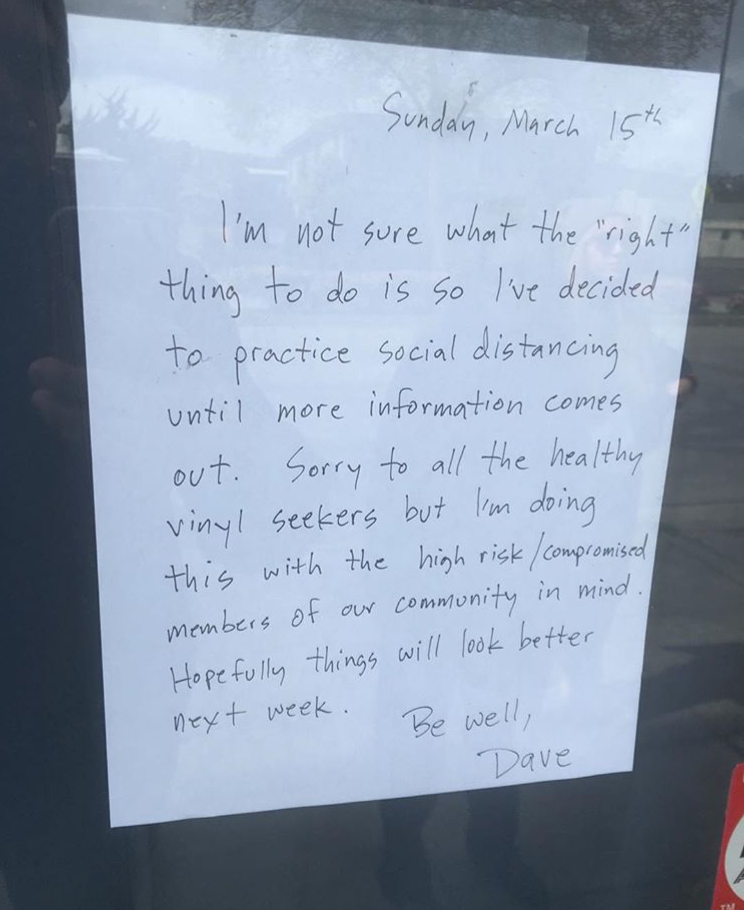Although the making of laws is far from business-as-usual these days, with the state Capitol closed and all hearings suspended for the moment, that doesn't mean work has stopped.
Two bills are being developed right now that would bring some relief to people suddenly without a way to pay rent because they have lost jobs or are otherwise impacted by the coronavirus. One, S.B. 939, from senators Scott Wiener (D-San Francisco) and Lena Gonzalez (D-Long Beach), would make it illegal to evict tenants from commercial property in California as long as the COVID-19 State of Emergency proclaimed by Governor Newsom is in effect.
The bill would not apply to eviction proceedings that had already begun before the declaration, made on March 4. It applies statewide, but would not prevent local governments from imposing more several penalties than the ones called for here (up to one year in jail and up to $10,000 in penalties for violations of the bill).
Yes, it's draconian, and the current situation, both economic and for public health, calls for it. Other legislators have signed on as co-authors, including Senator Nancy Skinner (D-Berkeley) and Assemblymembers Autumn Burke (D-Inglewood), David Chiu (D-San Francisco), and Rob Bonta (D-Alameda).
Another bill, which is still being developed, would halt residential evictions during the state of emergency and for fifteen days afterward. A.B. 828's authors are Assemblymember Phil Ting (D-San Francisco) with Senator Wiener as a principal co-author.
The bills are in addition to an Executive order from Governor Newsom last week (boy does that seem a long time ago) that authorized local governments to halt evictions, slow foreclosures, and protect against utility shutoffs until May 31, although it could be extended. That order also "requested" banks to halt foreclosures and evictions during this time period.
Meanwhile over more than 140 housing organizations and elected leaders sent a letter to Governor Newsom urging more a more strenuous response to protect tenants. Their letter calls for an immediate moratorium on rent increases, evictions, and foreclosures; a moratorium on homeless encampment sweeps, emergency rental and mortgage assistance, and suspension of rents and mortgages.
The bills described here are not yet "in print," and their language is still being finalized--links will be added when they are published. In addition, although legislators can continue to amend bills, the hearing and voting processes, given the suspension of business at the Capitol, are not clear. Several deadlines are set in statute and cannot be changed, including the passage of the state budget by June 15 and the end of all deliberations and votes by November 30 - the date that brings the two-year session to a close.
Other deadlines could be changed with a two-thirds vote of legislators. Usually, for example, all bills must pass a vote by the house they originated in by May 29; if they don't, they are considered dead. And all bills are supposed to be voted on by August 31, with Governor Newsom's last day to sign or veto them being September 30.
Sources say some kind of remote or virtual voting is being considered, but it is very much up in the air right now. Once solutions are found, things may move quickly; even in normal times, the second year of a two-year session leaves little time to waste.
And these are far from normal times.
Follow Streetsblog California on Twitter @StreetsblogCal






